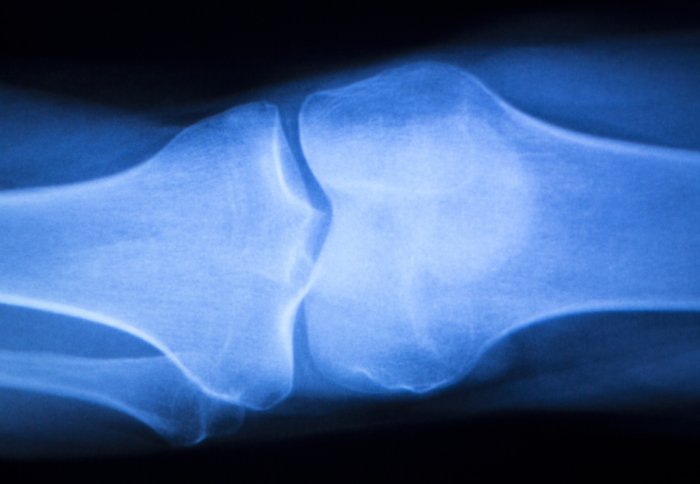Smith & Nephew joins forces with Imperial's Biomechanics Group
by Naomi Black

Imperial academics partner with Smith & Nephew to develop enhanced surgical techniques to treat sports injuries of the knee
The medical device giant Smith & Nephew have signed a 3-year partnership with a research group in the Department of Mechanical Engineering to find new ways to support one of our most important joints.
With an increasing participation in sport, and a trend to keep active later in life, the treatment of sports injuries of the knee has been identified by Smith & Nephew as one offering high growth opportunities.
The USD $1m research study is led by Professor Andrew Amis, Professor of Orthopaedic Biomechanics and leader of The Biomechanics Group, who already has a long-standing working relationship with the company. His expertise with artificial ligaments and total and partial knee prostheses as well as field experience working directly with surgeons has set the groundwork for this latest agreement.
This programme grant will allow us to follow through on some of our ideas, from basic anatomy through to design and testing of novel operative procedures to treat sports injuries of the knee.
– Professor Andrew Amis
Professor of Orthopaedic Biomechanics
The research outlined will focus largely on the function of the meniscus – the cartilage disk acting as a cushion between the femur and tibia – and performance of the cruciate and other ligaments, which work with the menisci to stabilise the whole joint. It is a highly complex system relying heavily on each element to maintain the integrity of the whole.
The meniscus presents a particular problem, as it has limited healing capability, and an injury increases the chances of getting arthritis later in life. This can lead to debilitating conditions, especially for the older demographic and high-impact sports players. Because of this it is crucial to find bioengineering solutions that work seamlessly with the body to replace the worn cartilage and compensate for other damaged elements.
“The partnership with Smith & Nephew is priceless for our work. It allows a strategic attack on the unanswered biomechanical issues in knee surgery. Knowing funding is secure for three years allows a step by step ‘due diligence’ approach to investigating these issues rather than sporadic studies. This is the best way to translate from the lab to patient care” said Mr Andy Williams, Lead Surgical Researcher, Imperial College London and Fortius Clinic.
The research will lead to improved understanding of the functional anatomy of key structures, their mechanical performance, and thus lead to enhanced methods of reconstruction, which will be designed and tested as part of the work. This will lead in a short time to clinical evaluations. While the partnership will provide Smith & Nephew with vital new clues as to where to direct its product development energy, it also builds on the substantial implant design work already started by The Biomechanics Group, allowing yet more progress in this area.
Andy Weymann, Chief Medical Officer, Smith & Nephew, commented: “Meniscus repair is one of the greatest challenges of Sports Medicine. By combining the clinical expertise of Imperial College with our pioneering approach to new product development we expect to be able both to advance surgical techniques and accelerate the development of next generation products.”
Article text (excluding photos or graphics) © Imperial College London.
Photos and graphics subject to third party copyright used with permission or © Imperial College London.
Reporter
Naomi Black
Enterprise